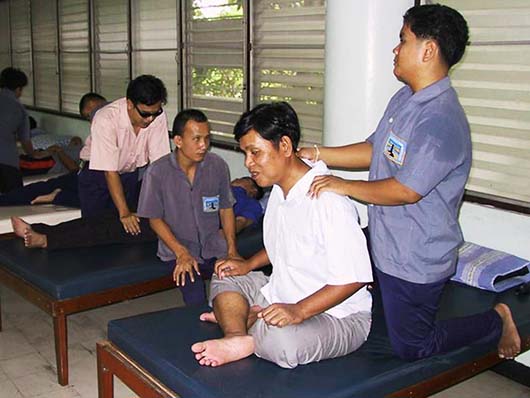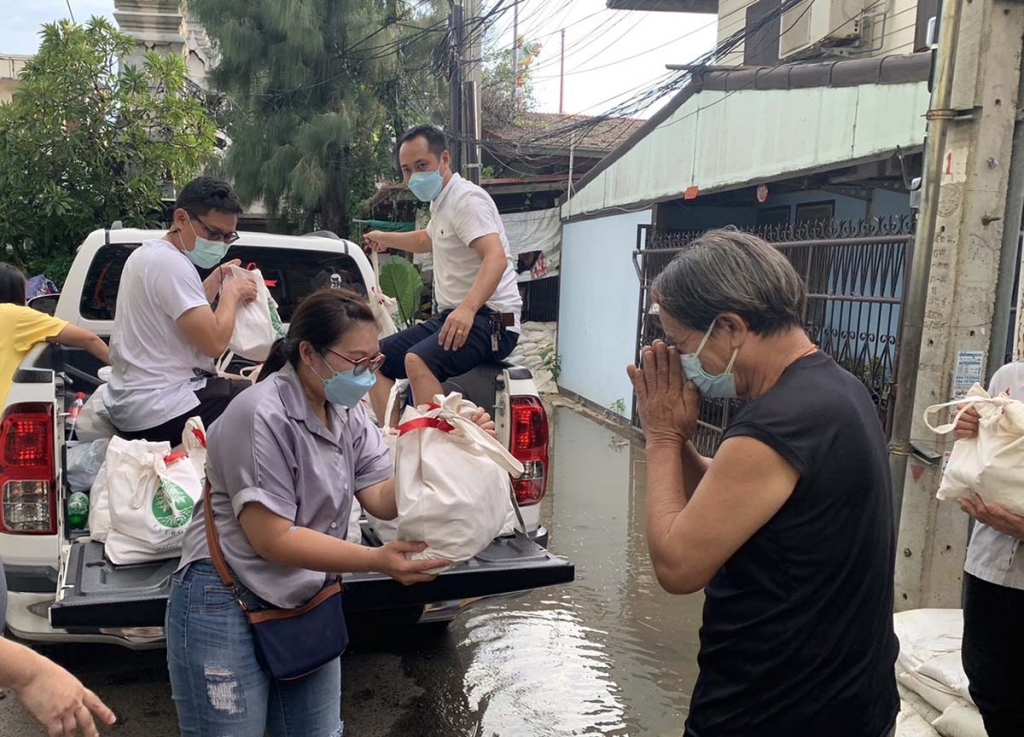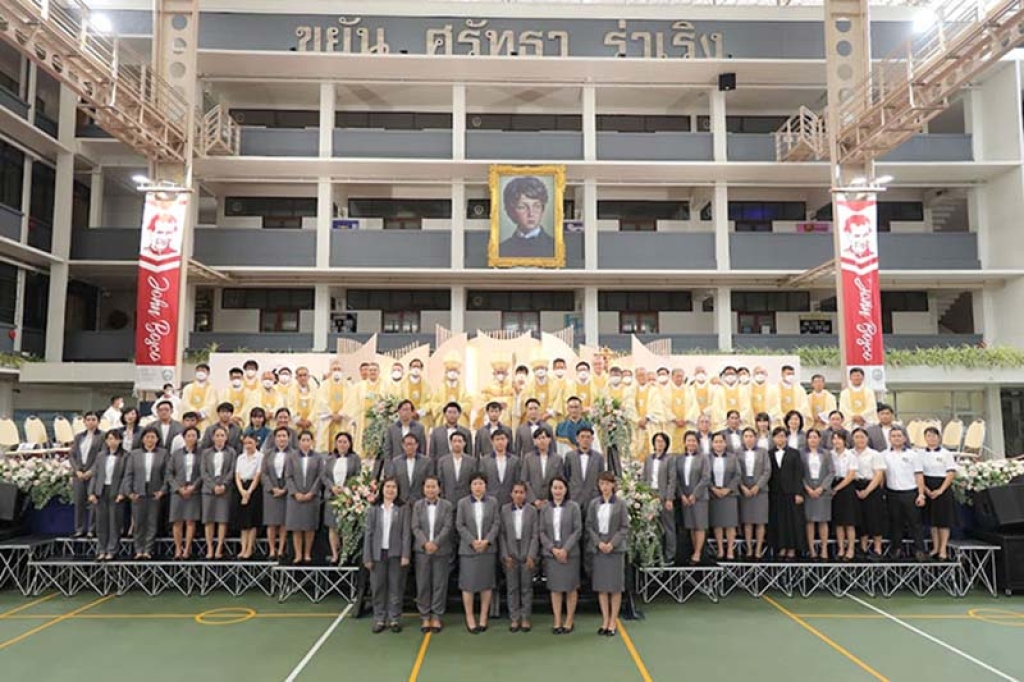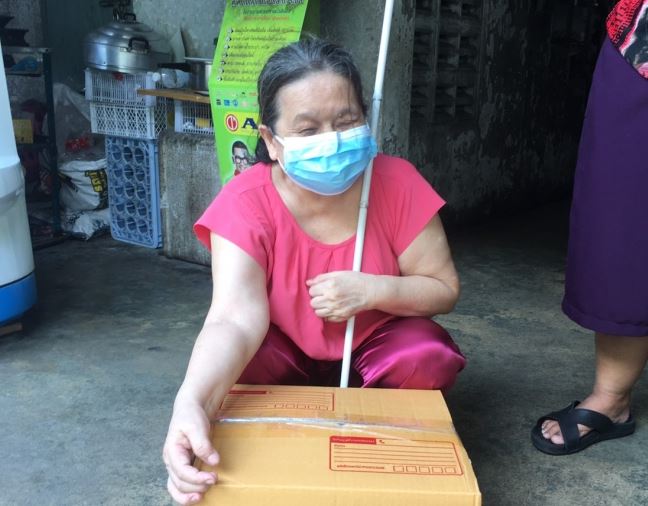THAILAND: Salesian Program Provides Education and Employment Skills for the Blind

(MissionNewswire) Thailand has shown considerable economic growth over the last 20 years, reducing the poverty rate from 21 percent in 2000 to 13.2 percent in 2011, according to the World Bank. Although the country has made strides in reducing poverty, improving nutrition and meeting basic needs of its residents, inequality is still pervasive. One of the more marginalized groups in the country is people with disabilities. Men, women and children with disabilities have been cast aside and perceived as incapable of engaging in meaningful work and leading productive lives.
Often those with disabilities, particularly those with visual impairments, are kept out of school and denied an education. As a result, their future employment prospects are diminished and the cycle of poverty continues.
For more than 35 years, Salesian Father Carlo Verlado has been the director of the Nonthaburi Skills Development Center for the Blind in Thailand’s capital, Bangkok. Each year, 40 students with visual impairments embark on an intensive two-year educational program. When the program first started students were taught trade skills in carpentry and woodworking. Some students were able to find work but many others were denied employment because local employers feared workplace injuries and were put off by the higher costs of insuring visually impaired employees.
As a result, the program changed focus and in 1983 began training its students to be massage therapists. As an acknowledgement of the high quality training offered and the program’s years of success, the Ministry of Public Health has begun to license graduates as doctors of Thai traditional massage. Most graduates are able to find work immediately and continue to hone their skills for many years. Through the program, the therapists-in-training see more than 150 clients each day.
“When I started the program, the blind were shunned and the common perception was that they could do only two things – sell lottery tickets or be telephone operators,” says Fr. Verlado. “Today, students are learning a valuable trade and living productive lives while giving back to their communities.”
Other programs at the school offer a comprehensive curriculum that goes beyond teaching a trade. In addition to gaining an education and learning valuable job skills, students participate in activities such as judo, baseball, bicycle riding and competitive running, all of which foster physical development and self-confidence.
“It’s quite daunting for a blind person to play baseball or run a race, but once they get good at it, they think, ‘Well, what else can I do?'” says Fr. Verlado. “One of our more successful activities is teaching the students judo for self-defense. We were able to get instructors from the local police force. As a result, some of our students have even won national judo competitions.”
Living in the communities in which they work, Salesians are adept at identifying and responding to local needs. As a result, they are able to specialize in developing customized trade education that leads to stable and livable wage employment. Through a commitment to defend the rights of those with disabilities and the development of specialized training, Fr. Verlado and his team are helping visually impaired youth not only to gain independence, but also transition from social isolation to leading lives of inclusion and productivity.
###
Sources:
ANS – Thailand – Preparing the Blind for Work and for Life
World Bank – Thailand




